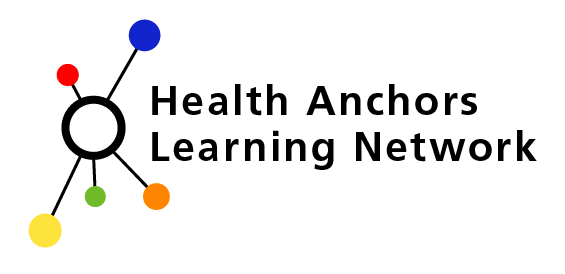Insights from the HALN evaluation and Test and Learn programme
Jenna Collins, Programme Manager, The Health Foundation
Hebba Nasser, Programme Officer, The Health Foundation
When we set out to design the Health Anchors Learning Network (HALN) with NHS England and the Innovation Unit three years ago, we weren’t entirely sure how the network would land with COVID-19 pressures on the system or what the interest would be.
To help us capture the learning from this journey and understand where and how the HALN has and could be more effective, SQW were commissioned to undertake a developmental evaluation.
Working with SQW, alongside, NHS England, the Innovation Unit and HALN participants, we’re excited to share the key findings from the evaluation, as well as some of the Health Foundation’s broader reflections from the first two years of delivery.
‘[The HALN] draws on the learning and experiences of others which helps us avoid the same traps and helps us to do the right things.’ - HALN participant
Key findings from the evaluation
The HALN has supported participants and acted as a facilitator to develop and strengthen anchor practices. Peer learning has been particularly useful in an emergent agenda to exchange ideas with those facing similar challenges.
The HALN has made early progress influencing local strategy and HALN learning has fed into discussions at a regional and national level, including the 2022/23 priorities for the system, the ICS framework on the role of ICSs in social and economic development and being referenced in NHS England’s long term workforce plan.
The HALN has a unique and valued place within the anchor landscape and is known as a 'piece of a jigsaw' because of its exclusive focus on anchors, its breadth of topics and UK-wide remit.
While the HALN made considerable progress in two years, there are ways it can continue to improve, including balancing breadth and depth of learning, as well as more learning from other nations and sectors outside health.
In the future, there’s an opportunity for HALN to shift from an ‘information sharing’ to a ‘debate leading’ network; the HALN is well placed to use its synthesised learning, that is rooted in people’s experiences to intentionally shape the anchor conversation.
‘We gained credibility that this is a national issue, [which] helped raise the profile of our work and support resource requests.’ – HALN participant.
You can read the full evaluation report on the Health Foundation website.
Learning from Test and Learn grants
In addition to the HALN, six anchor projects were also funded via the Test and Learn grant funding programme to embed new and innovative anchor approaches.
Test and Learn project teams had a number of successes, including creating a social value toolkit for suppliers, setting up a ‘Foundation School in Health’ in Bassetlaw, an interactive mapping tool identifying pre-employment opportunities for young people in mid and south Essex, a more diverse supply chain in Glasgow, and a co-designed anchor framework for coastal communities.
Teams have shared their learning via a celebration event, which you can watch on YouTube, as well as case studies and project summaries on the Health Foundation website.
Although not formally part of the SQW evaluation, key learning emerged from across the projects’ that’s summarised on the Health Foundation website. Despite the diversity among the six anchor projects, strong partnership working, senior leadership support and good planning were essential ingredients to successful anchor projects. Most of the projects also had to find creative solutions to capacity challenges. Measurement and impact was also a challenge, so new tools such as the UCLPartners Anchor Measurement Toolkit will support others in future to capture anchor activity and impact.
Three years on, over 1600 participants later, and six anchor projects delivered, we’re proud of the network created and how the HALN has evolved together with participants’ anchor journeys.
Thanks to all HALN participants who contributed to this evaluation along the way, via interviews and surveys. We are delighted to have seen the network grow with the anchor landscape, and this learning from the evaluation and Test and Learn programme is a great marker of what together we have achieved.
